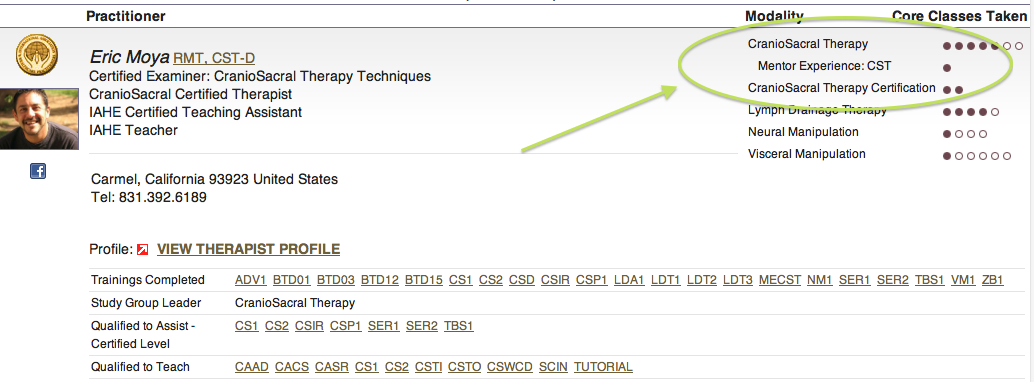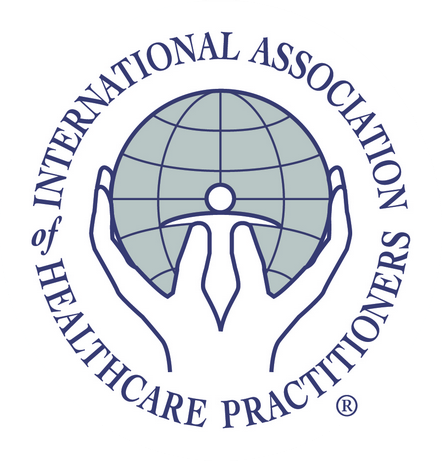Do you ever feel unsure about an aspect of your practice, unclear about how to proceed in a certain situation, unsure about how to work with something that has come up for a client?
Ever want to talk things through with someone, maybe set new goals, focus your practice aims?
Well, we now have a new way to support you and your CST training, via our new Mentoring program and specifically our 1:1 Mentors.
This program allows you to record the hours you spend doing certain skill building activities and gain recognition form them. The activities include receiving treatments, going to study groups and participating in 1:1 mentorship.
What do you get from it?
Many of us have asked questions of our teachers, study group leaders and colleagues, and asked for the support we needed and this will not change, but Upledger Institute International felt it was time to develop a way of recording and acknowledging this training beyond the classes so that practitioners can gain recognition for it.
On the International IAHP website they outline the courses we have done with 'dots'. Participation in this program allows the skill building activities to count for something more, so when you complete 24 hours worth of activities as outlined in the mentoring program below you get an extra dot, plus you get all the advantages of having participated in the activities in the program of course!

How do I get my Hours?
You need 24 hours in total of various types of mentoring to achieve your 'dot credit'. You will need 6 hours of each of the following three categories of mentoring and 6 from any of them.
Category A: TREATMENT
Receiving treatment from a qualified Upledger CST practitioner (CST or CST-D), where each session counts as one hour.
Category B: SMALL OR LARGE GROUP SUPPORT
This includes study groups, virtual study groups, conferences or symposium, clinical applications classes or other small or larger group learning settings (as long as they are presented by UI endorsed / affiliated people).
You can count one hour of this category for each study group or virtual study group that you attend (typically the groups themselves would last 2-6 hours).
You can count 2 hours per day for attending a symposium such as Beyond the Dura or Rhythm & Resonance.
You can count 6 hours for a clinical applications class.
You can count 1.5 hours per day of for acting as a therapist in a UII endorsed Intensive Therapy program.
Category C: 1:1 MENTORING
This can be done in person or it can be online (via skype) and must be with an approved mentor, however all the hours do not have to be with the same mentor. Your professional needs and learning requirements are the priority and focus of the sessions.
Follow this link to the Mentorship Program Calendar Page for webinar options.
Our current Australian approved mentors are listed here
| City | Name & Quals | Phone | Website/Email | Suburb |
|---|---|---|---|---|
| Adelaide | Erin Riley - PT, CST-D | 0406 249 221 | www.evolvemanualtherapy.com.au | Rose Park |
| Sydney | Kristiane Heidrich - PT, CST-D | 02 9798 6115 | www.ashfieldphysiocentre.com.au | Ashfield |
Follow this link for a full list of International Approved Mentors.
So how do I Become a Mentee?
It's simple!
First: You download your tracking form here.
Second: You participate in the mentoring program activities as shown above and get the appropriate person to sign your form.
Third: Once all the hours are completed you send the form with application details to Eric Moya, the Ombudsman of the program, with a $15 administration fee, and he will carry out the necessary processes to get your work the 'dot credit' it deserves!
A good thing to be aware of: The Mentoring Program's Mission
(I quote:)
'The core mission of the IAHE Clinical mentorship program is to help elevate the manual therapy profession by training and supporting practitioners to help other practitioners grow and develop professionally. The program is committed to fostering collegial and professional training/support programs for both mentees and mentors as well as working collaboratively with modality leaders to ensure good standards of modality oversight as well as mentorship oversight.'
Frequently Asked Questions: (adapted from the upledger.com site)
1. How much will it cost?
There is no specific cost for signing up to the program. There is a small admin fee ($15) to process completed tracking forms.
The costs for treatments and 1:1 mentorship will tend to be more expensive than small / large group mentorship because you are paying for the time of the practitioner / mentor.
What practitioners charge for treatments varies depending on their location and set up.
Those who are approved mentors have agreed to charge in the region of 2/3rds of their typical treatment fee for 1:1 mentoring.
2. Do I have to have reached a certain level before I can join the program?
It is useful and supportive to your practice to go over the work learned at any time. However, it is good to put the time in yourself after new classes both treating and reviewing the material first.
3. Will mentorship help me towards certification?
Both the mentorship program and the certification program are designed to help you refine and be recognized in your skills as a CST practitioner. Although the mentorship program is more focused on helping you become a better practitioner and the certification program is more focused on helping you be recognized as a skilled practitioner, it is assumed that the end goals are complementary.
Many people will work with a mentor for the sake of preparing for the certification process. If that is specifically the case for you, you might choose a mentor who is also an examiner for the certification process.
4. What does 1x1 mentorship look like?
1x1 mentorship looks different depending on your learning needs and goals. It might look like reviewing and practicing the techniques. It could look like tracking and having discussions about clients you are seeing in your own practice. It could look like co-treating with the mentor on one of your clients or one of theirs. There are many, many types of arrangements possible with 1x1 mentorship. Part of the additional training your mentor has undergone has been to learn about different mentorship arrangements and when one type of mentorship might be more appropriate than another. When you schedule a 1x1 mentorship session, your mentor is likely to work with you to establish your learning needs and goals and then make a recommendation on how best to meet those needs. Almost everything in the mentorship arrangement is about a supportive and collaborative discussion process between you and your mentor.
5. What can I do if there are no mentors in my area?
One of the beautiful things about the era we live in is the connectivity available to us. All of the Category B and C mentorship options are available in virtual formats. It is very possible for you to accrue the vast majority of your mentorship hours with a mentor who lives quite remote from you and yet still have confidence in knowing that you are receiving a very high quality of mentorship from one of our certified mentors. Of course there may be some need to travel for treatments or 1:1 mentorship if you live more remotely.
6. Can I receive credit for mentoring I''ve received in the past?
If you have already been receiving mentoring, congratulations for being active in your own growth! As the program kicks off, we want to be able to support the work you''ve already done! The program officially began on May 1, 2014. You may count experiences from then.
7. Will a mentor teach me new material?
A mentor does not replace actually attending courses. Although the mentor might very well teach you things, the mentor won’t teach you techniques which are presented in courses that you have not yet attended. Reviewing techniques (and their applications) you have already learned in IAHE courses may very much be part of your mentorship session.
8. Do mentors receive mentorship?
Yes! In order to even become a mentor, mentors have had to demonstrate a strong value in the process of mentorship in their career. Additionally, part of the mentor certification process includes regular contact with the ombudperson of the mentorship program to ensure quality and consistency of mentorship.
9. Can I become a mentor?
You can become a mentor. For a list of requirements to be a mentor see this document. There are also ongoing requirements to maintain certified mentor status explained here.
If you can tick the appropriate boxes and would like an application form to begin the process, please email Shane Hill the UIA Satellite at shane@upledger.com.au or the program coordinator Eric Moya eric@ericmoya.com.
Mentor program elements and criteria are subject to change.




